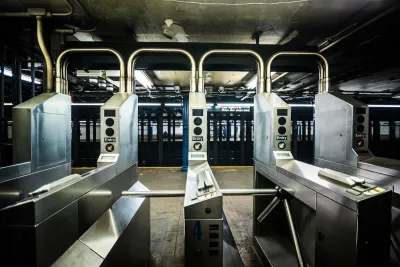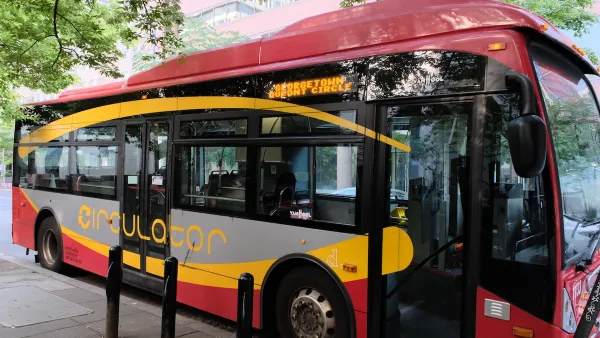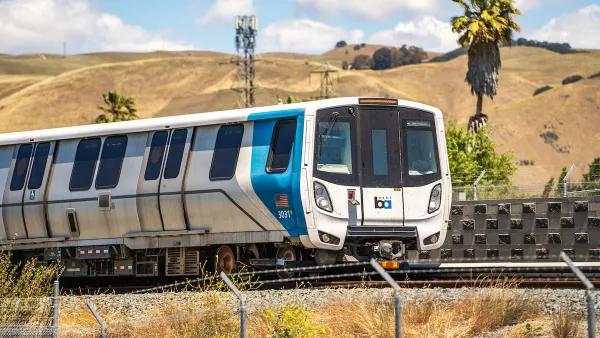The loss of revenue from fare evasion is a drop in the bucket compared to the fiscal cliff facing major U.S. transit agencies.

In an opinion piece published in Streetsblog, Sogand Karbalaieali argues that debates over fare evasion on public transit systems largely miss the point.
According to Karbalaieali, the revenue losses caused by people jumping turnstiles or failing to tap their payment cards pale in comparison to “a more significant and fundamental problem:” the massive budget shortfalls faced by many U.S. transit agencies, including the the Washington Metropolitan Area Transit Authority (WMATA) in Karbalaieali’s home region.
While news outlets are preoccupied with fare evasion and WMATA's strategies to combat it, a more significant question emerges: How else can WMATA generate revenue?
Karbalaieali suggests “creative solutions for generating revenue through underutilized parking spaces” by converting WMATA-owned lots to other types of development. The article also blames parking requirements for driving up the cost of housing.
Ultimately, Karbalaieali writes, fare evasion is a distraction from much more critical priorities. “While addressing fare evasion is important, the more pressing urgency lies in achieving our climate goals, promoting healthy lifestyles, fostering sustainable transportation, and building resilient infrastructure.”
FULL STORY: Opinion: Fights Over Fare Evasion Are Missing the Point

National Parks Layoffs Will Cause Communities to Lose Billions
Thousands of essential park workers were laid off this week, just before the busy spring break season.

Retro-silient?: America’s First “Eco-burb,” The Woodlands Turns 50
A master-planned community north of Houston offers lessons on green infrastructure and resilient design, but falls short of its founder’s lofty affordability and walkability goals.

Delivering for America Plan Will Downgrade Mail Service in at Least 49.5 Percent of Zip Codes
Republican and Democrat lawmakers criticize the plan for its disproportionate negative impact on rural communities.

Test News Post 1
This is a summary

Test News Headline 46
Test for the image on the front page.

Balancing Bombs and Butterflies: How the National Guard Protects a Rare Species
The National Guard at Fort Indiantown Gap uses GIS technology and land management strategies to balance military training with conservation efforts, ensuring the survival of the rare eastern regal fritillary butterfly.
Urban Design for Planners 1: Software Tools
This six-course series explores essential urban design concepts using open source software and equips planners with the tools they need to participate fully in the urban design process.
Planning for Universal Design
Learn the tools for implementing Universal Design in planning regulations.
EMC Planning Group, Inc.
Planetizen
Planetizen
Mpact (formerly Rail~Volution)
Great Falls Development Authority, Inc.
HUDs Office of Policy Development and Research
NYU Wagner Graduate School of Public Service





























